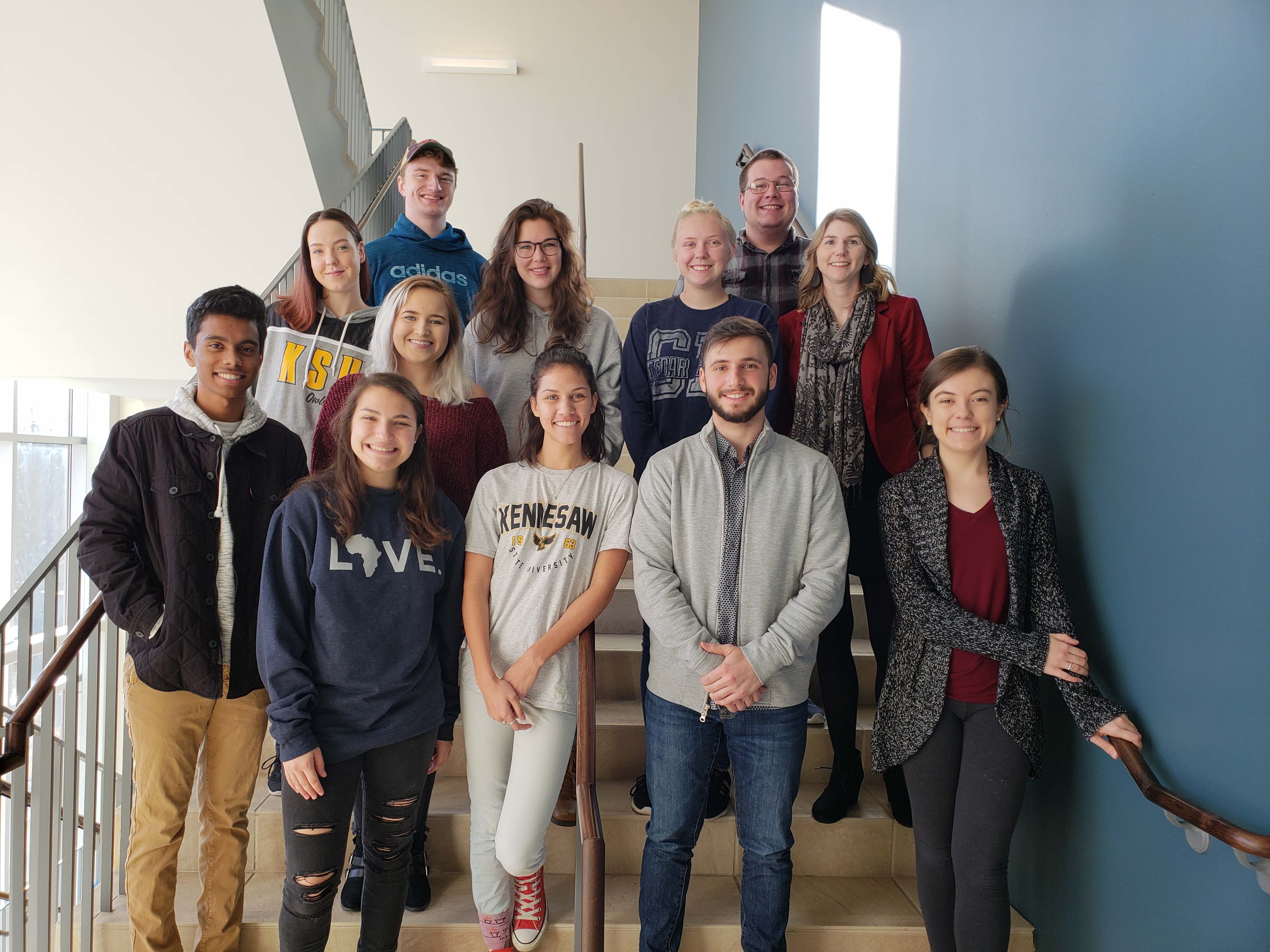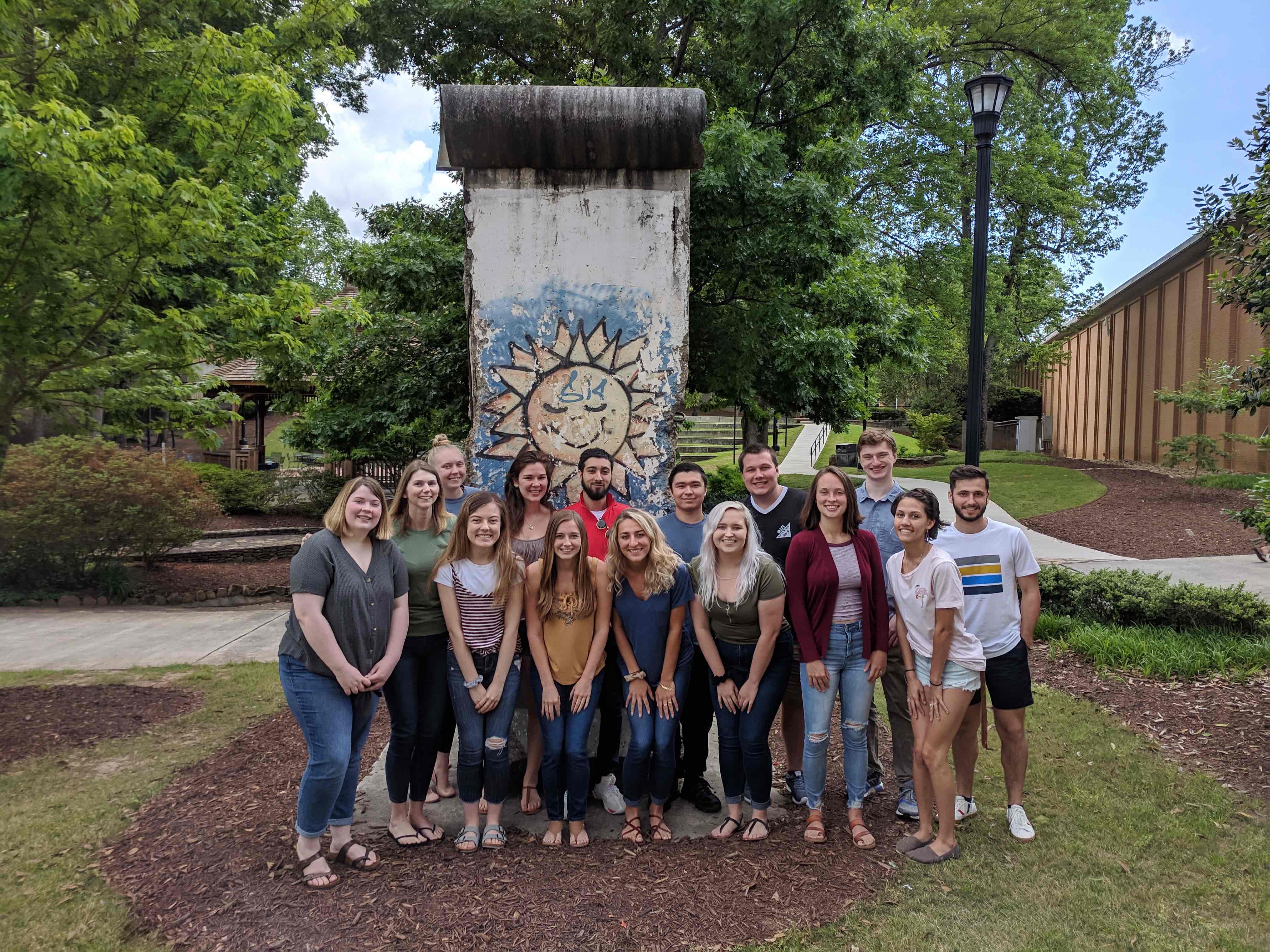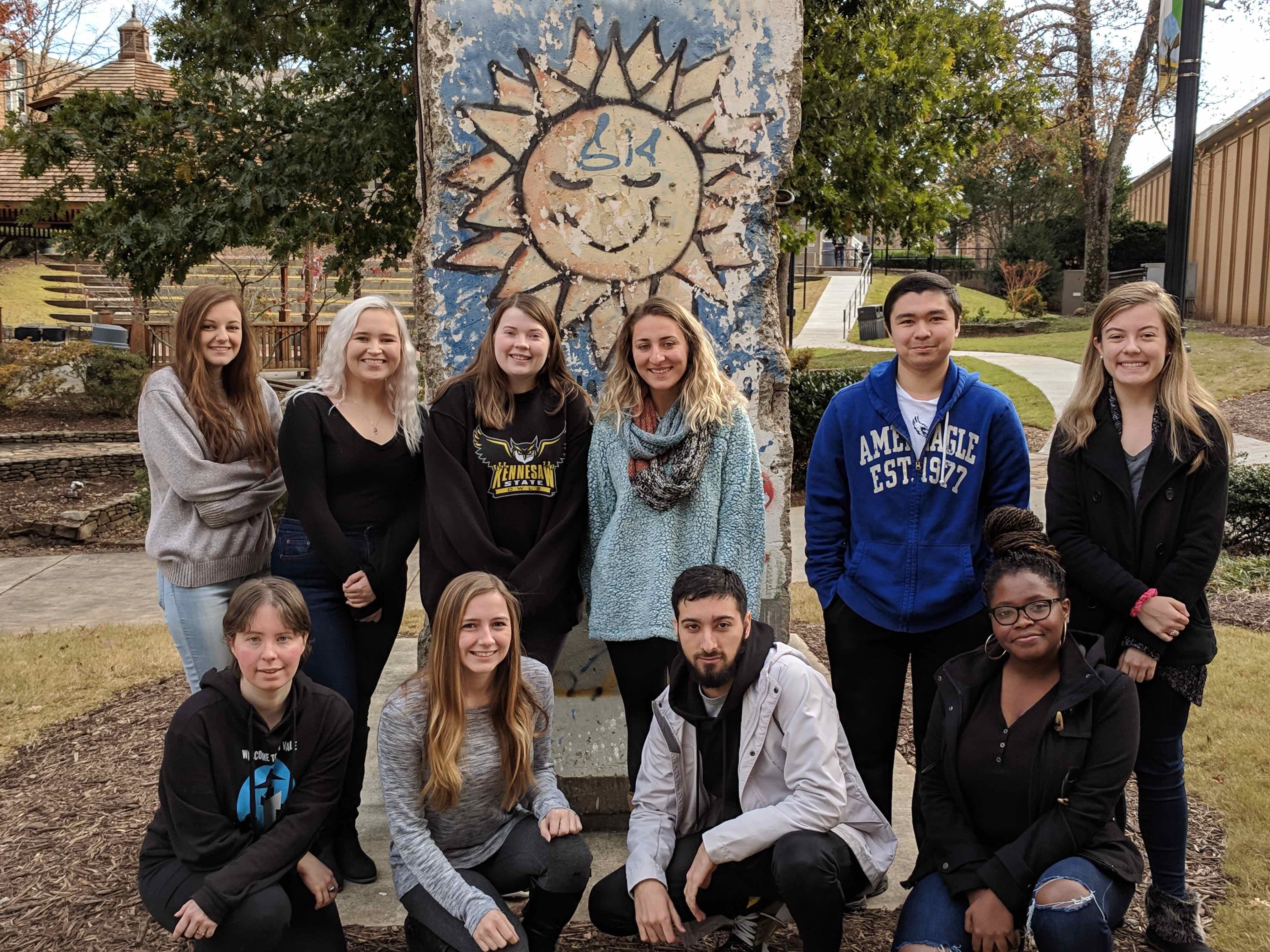Research



Recent Presentations with Student Researchers:
Willard, J., Williamson, A. L., Hall, C., & Rodriguez-Alvarado, M. (2025, April). Is that cheating? Students' and instructors' perceptions of groupchats. Poster presented at the Southeastern Psychological Association conference.
Weiss, J., & Willard, J. (2024, April). Examining burnout levels in collegiate student athletes. Poster presented at the KSU Symposium of Student Scholars.
Willard, J., & Calligan, C. (2023, April). The Big Five and informant behavior: Can personality predict when students snitch? Poster presented at the Southeastern Psychological Association conference.
Willard, J., & Goldstein, A. (2022, March). Friend or foe? Blame-taking and informant behavior among friends and strangers. Presented at the American Psychology - Law Society conference.
Willard, J., Williarmson, A. L., & Manocchio, A. (2021, October). Students' perceptions and anticipated responses to cheating via GroupMe. Poster presented at the Annual Conference on Teaching.
Goldstein, A., Bowen, Goden, A., & Willard, J. (2020, March). Wrongful convictions and false confessions. An analysis of exoneration cases. Poster presented at the American Psychology - Law Society conference.
Katz, N., Jones, M., Willard, J., & Williamson, A. (2020, April). What's this GroupMe Thing? Instructor perceptions and experiences. Oral presentation given virtually at the KSU Symposium of Student Scholars and Georgia Undergraduate in Psychology conference.
Peek, S. A., & Willard, J. (2020, April). Do students' beliefs about gender relate to their performance in a gender course? Poster presented at virtually at KSU Symposium of Student Scholars.
Willard, J., Latimer, D., Gartaval, K., & Gilcrease, S. (2018, March). Self-reported willingness to let friends falsely take the blame. Poster presented at the Southeastern Psychological Association conference.
Journal Publications:
Marsil, D. F., McNamara, C. L., Taglialatela, L. A., & Willard, J. (2024). Clearing the path from hiring to the classroom: A Chair's guide to onboarding contingent faculty. The Department Chair, 35, 26-28.
Stewart, T. L., Willard, J., Steiner, H. H., & Tikkanen, M. (2023). A "mindful" approach to inclusive education. Scholarship of Teaching and Learning, 9(4), 357-372.
McNamara, C. L., Marsil, D. F., Willard, J. & Reinhart, M. (2023). Social norms impact the likelihood of stalking perpetration among college students. Journal of Aggression, Maltreatment, & Trauma.
Willard, J. & Buddie, A. (2019). Enhancing empathy and reading for pleasure in Psychology of Gender. Psychology of Women Quarterly, 43, 398-403.
Madon, S., Jussim, L., Guyll, M., Nofziger, H., Salib, E., Willard, J., & Scherr, K. (2018). The accumulation of stereotype-based self-fulfilling prophecies. Journal of Personality and Social Psychology, 115, 825-844.
Willard, J. & Burger, C. (2017). Willingness to falsely take blame among friends: Closeness, reported wrongdoing, and identity. Deviant Behavior, 39, 981-991.
Willard, J., Guyll, M., Madon, S., & Allen, J. (2016). Relationship closeness and self-reported willingness to falsely take the blame. Behavioral Sciences and the Law, 34, 767-783.
Willard, J., Madon, S., & Curran, T. (2015). Taking blame fo other people's misconduct. Behavioral Sciences and the Law, 33, 771-783.
Madon, S., Guyll, M., Scherr, K. C., Willard, J., Spoth, R., & Vogel, D. (2013). The role of the self-fulfilling prophecy in young adolescents' responsiveness to a substance use prevention program. Journal of Applied Social Psychology, 43, 1784-1798.
Willard, J., Madon, S., Guyll, M., Scherr, K. C., & Buller, A. A. (2012). The accumulation of shared expectations. European Journal of Social Psychology, 42, 497-508.
Madon, S., Willard, J., Guyll, M., & Scherr, K. C. (2011). Self-fulfilling prophecies: Mechanisms, power, and links to social problems. Social and Personality Psychology Compass, 5, 578-590.
Madon, S., Guyll, M., Buller, A. A., Scherr, K. C., Willard, J., & Spoth, R. (2008). The mediation of mothers’ self-fulfilling effects on their children’s alcohol use: Self-verification, informational conformity and modeling processes. Journal of Personality and Social Psychology, 95, 369–384.
Willard, J., Madon, S., Guyll, M., Spoth, R., & Jussim, L. (2008). Self-efficacy as a moderator of positive and negative self-fulfilling prophecy effects: Mothers’ beliefs and children’s alcohol use. European Journal of Social Psychology, 38, 499–520.
Madon, S, Willard, J., Guyll, M., Trudeau, L., & Spoth, R. L. (2006). Self-fulfilling prophecy effects of mothers’ beliefs on children’s alcohol use: Accumulation, dissipation, and stability over time. Journal of Personality and Social Psychology, 90, 911–926.
Madon, S., Guyll, M., Spoth, R. L., & Willard, J. (2004). Self-fulfilling prophecies: The synergistic accumulation of parents’ beliefs on children's drinking behavior. Psychological Science, 15, 837–845.









